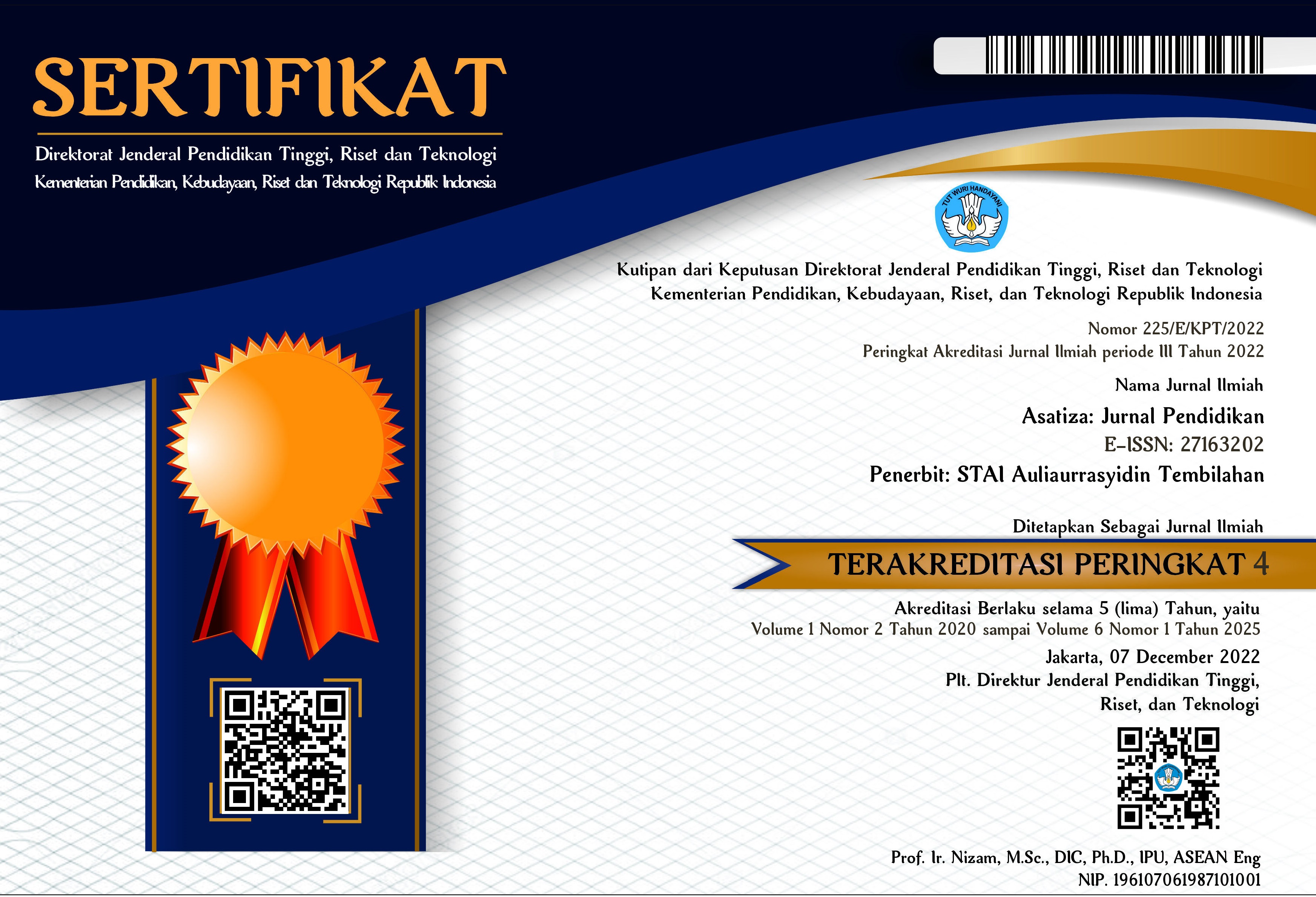Paradigma Pendidikan Islam dalam Kajian Gender Perspektif Riffat Hasan
DOI:
https://doi.org/10.46963/asatiza.v3i2.488Keywords:
Islamic education, Gender, Riffat HasanAbstract
This study aims to describe the paradigm of Islamic education in several gender studies in Riffat Hasan's perspective. The method used is a qualitative method with descriptive analysis. This study resulted in the finding that the paradigm of Islamic education thought by Riffat Hasan about the position and role of men and women has clear roots, proving that before Allah humans are functionally the same, namely to worship and benefit others, that's all. Riffat Hasan demanded several things which he thought were unfair and equal in the teachings of Islam which were branded by patriarchal people, he emphasized that Islam is very fair in this gender issue, it's just that the patriarchs always act victorious on their own behalf and in the name of religion in their attitude.
Downloads
References
Al-Faqi., Sobri, M. (2011). Solusi Problematika Rumah Tangga Modern. Bekasi: Sukses Publishing.
Dwijayanti, E. (2017). Membangun Paradigma Pendidikan Islam Berkeadilan Gender (Telaah Pemikiran Riffat Hassan). Salatiga: Institut Agama Islam Negeri (IAIN) Salatiga.
Haningsih, S. (2005). Pemikiran Riffat Hasan tentang feminisme dan implikasinya terhadap transformasi sosial Islam. Al-Mawarid: Jurnal Hukum Islam, 13, 110–31. https://journal.uii.ac.id/index.php/JHI/article/view/2811
Kasmawati, K. (2013). Gender dalam persfektif Islam. Sipakalebbi’, 1(1), 55–68.
Qaradhawi, Y. (2017). Fiqih Wanita. Bandung: Penerbit Jabal.
Syamsuddin, M. M., & Koeswanjono, A (1999). Teologi feminisme Riffat Hasan dan rekonstruksi pemahaman atas kedudukan dan peran wanita. Jurnal Filsafat, 29. https://doi.org/10.22146/jf.31674
Supardi, A. (2021). Mensyukuri Takdir Cinta. Jakarta: Guepedia.
Utomo, A. H. (2003). Status ontologis perempuan (Gugatan Riffat Hasan atas kontruksi teologis dari konsep gender). Jurnal Filsafat, 13(3), 279-287. https://doi.org/10.22146/jf.31302
Downloads
Published
Issue
Section
License
Authors who publish with this journal agree to the following terms:
1. Copyright on any article is retained by the author(s).
2. The author grants the journal, right of first publication with the work simultaneously licensed under a Creative Commons Attribution shareAlike 4.0 International License that allows others to share the work with an acknowledgment of the work’s authorship and initial publication in this journal.
3. Authors are able to enter into separate, additional contractual arrangements for the non-exclusive distribution of the journal’s published version of the work (e.g., post it to an institutional repository or publish it in a book), with an acknowledgment of its initial publication in this journal.
4. Authors are permitted and encouraged to post their work online (e.g., in institutional repositories or on their website) prior to and during the submission process, as it can lead to productive exchanges, as well as earlier and greater citation of published work.
5. The article and any associated published material is distributed under the Creative Commons Attribution-ShareAlike 4.0 International License











2.png)



